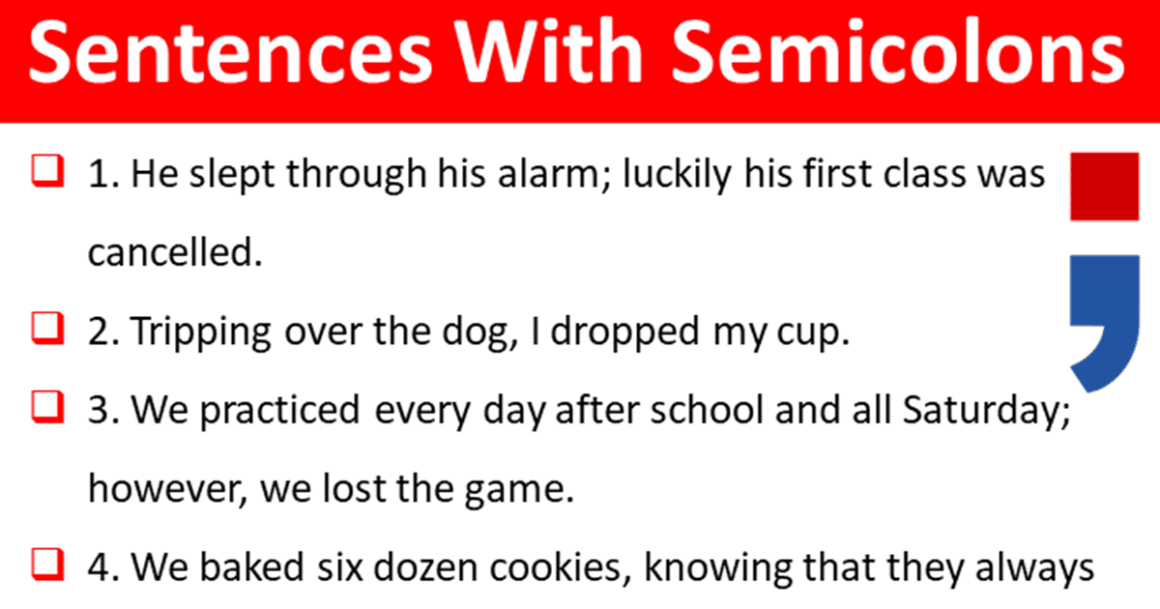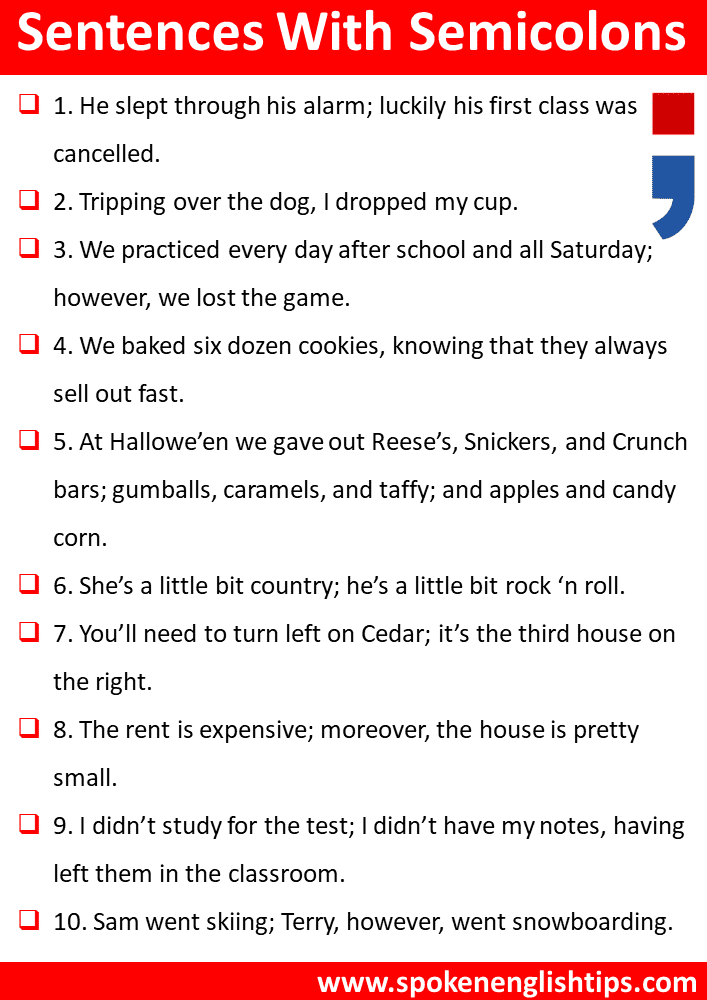
Semicolons are most often used to connect two independent clauses (full sentences) that are related in meaning. Both the words before the semicolon and the words after it must be complete sentences that could be separated with a period.
- We could go fishing on Saturday. You could borrow a pole from my neighbour.
- We could go fishing on Saturday; you could borrow a pole from my neighbour.
Using a semicolon to connect two independent clauses creates what’s called a compound sentence. If you don’t want to use a semicolon, you could also use a comma and the words and, but, or, or so to connect your original two sentences. If you use “however” or moreover” to connect your ideas, you need to use a semicolon in front of it and a comma after it.
- The course is hard, but the teacher is pretty funny.
- The course is hard; however, the teacher is pretty funny.
Using a semicolon instead of a period lets you emphasize the connection between your original two sentences and also lets you vary the structure of your sentences, making your paragraphs easier for someone else to read.
Semicolons with Commas
Less often, you’ll need a semicolon to separate items in a series. Ordinarily, of course, you can just use commas:
He’s taking algebra, biology, and drama.
But when the series you’re writing about already contains commas of its own, adding more commas can confuse your readers.
He’s taking algebra, which he’s good at, biology, his least favourite subject, and drama, for fun. On the table were three piles: meat, chicken and fish, rice, bread, pasta, and spinach, broccoli, and kale.
To make your list clearer, therefore, use commas instead of semicolons to mark off its major sections
He’s taking algebra, which he’s good at; biology, his least favourite subject; and drama, for fun.
On the table were three piles: meat, chicken and fish; rice, bread, and pasta; and spinach, broccoli, and kale.
Sentences With Semicolons Examples
1. He slept through his alarm; luckily his first class was cancelled.
2. Tripping over the dog, I dropped my cup.
3. We practiced every day after school and all Saturday; however, we lost the game.
4. We baked six dozen cookies, knowing that they always sell out fast.
5. At Hallowe’en we gave out Reese’s, Snickers, and Crunch bars; gumballs, caramels, and taffy; and apples and candy corn.
6. She’s a little bit country; he’s a little bit rock ‘n roll.
7. You’ll need to turn left on Cedar; it’s the third house on the right.
8. The rent is expensive; moreover, the house is pretty small.
9. I didn’t study for the test; I didn’t have my notes, having left them in the classroom.
10. Sam went skiing; Terry, however, went snowboarding.



